


Pakistan's Minister for Finance and Revenue Muhammad Aurangzeb emphasized the ironclad partnership between China and Pakistan as well as huge potential for the China-Pakistan Economic Corridor.
Under the Belt and Road Initiative, the two sides are transitioning from infrastructure cooperation to deeper multidimensional collaboration in technology, finance, and trade, with the depth of China's capital market offering significant development opportunities for Pakistan.
"China's innovation is characterized by one big thing, that is, we are open to innovation," said Xu Xiujun, director of the International Political Economy Department of the Chinese Academy of Social Sciences' Institute of World Economics and Politics, to China Daily Website at the Boao Forum for Asia 2025.
He also pointed out that China's innovative achievements come from exchanges and cooperation with other countries. At the same time, these results will also be shared with the world. Check out this video to learn more.
At the Boao Forum for Asia Annual Conference 2025, Hazem Ben-Gacem, CEO of Abu Dhabi-based asset management company BlueFive Capital, expressed his admiration for Chinese tech innovations such as DeepSeek and vowed to increase investments in China. "When people can't tell if we're a Middle Eastern or Chinese investment firm, that's when I'll know we've succeeded," he said.
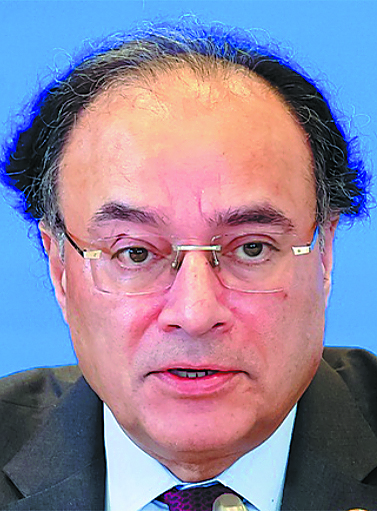
Pakistan plans to issue yuan-denominated "panda bonds" this year, further integrating its capital markets with China's — a testament to the deepening cooperation between the two neighbors and China's key role in Pakistan's digital transformation, a senior Pakistani official said.
Speaking on Wednesday on the sidelines of the Boao Forum for Asia Annual Conference 2025 in Hainan province, Pakistan Minister for Finance and Revenue Muhammad Aurangzeb highlighted the growing bilateral collaboration across multiple sectors.
The world is big enough for hundreds of countries, including the United States and China, to co-develop artificial intelligence, and Washington's sanctions on high-tech sectors will only steel Beijing's resolve to drive homegrown innovation, said leading industry experts at the ongoing Boao Forum for Asia Annual Conference 2025 on Thursday.
Zeng Yi, a member of United Nations' high-level advisory body on AI and a researcher at the Chinese Academy of Sciences' Institute of Automation, said: "The future of AI is not decided by a handful of countries, but by nearly 200 countries and regions. The world is wide enough to embrace both the US and China to co-develop AI."
The comments were made at this year's BFA, where AI sits center stage and is garnering international attention from dazzling tech showcases and spirited debates at different high-level subforums.
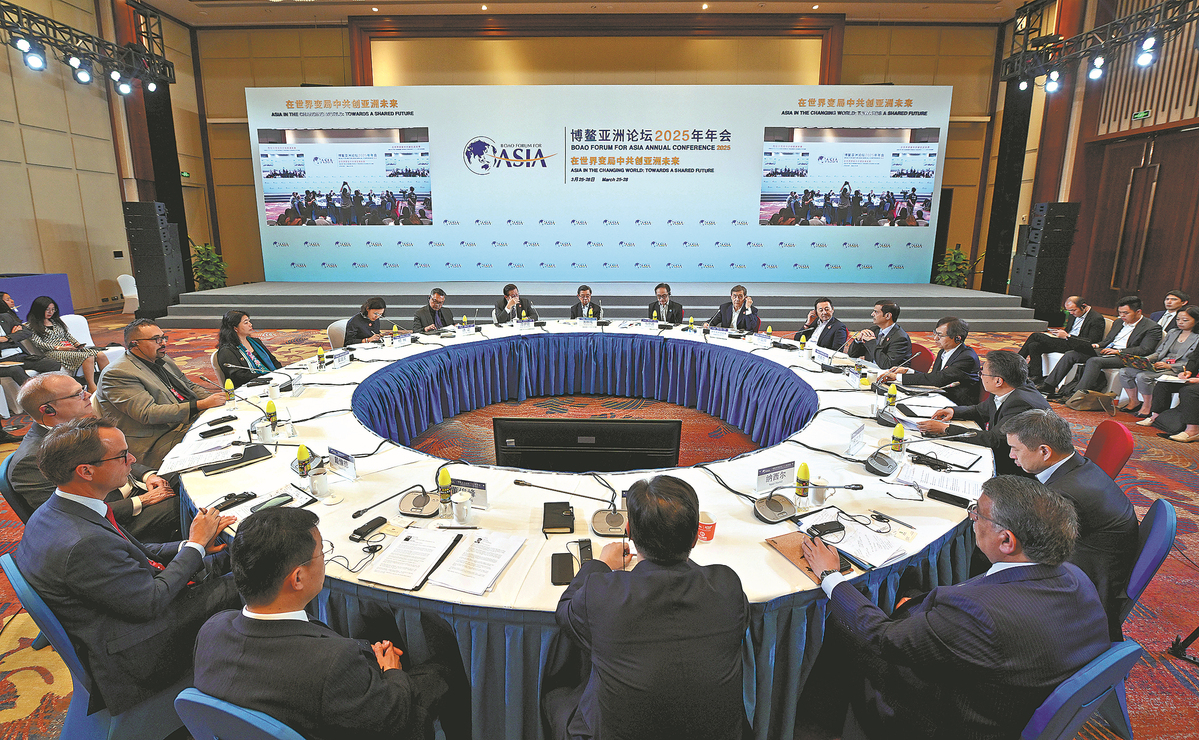
China's booming digital economy is playing a key role in spurring the integrated development of the Asia-Pacific region, thanks to the country's prowess in high-tech fields such as 5G, artificial intelligence and cross-border payment systems, officials and experts said at the ongoing Boao Forum for Asia Annual Conference 2025.
Zhao Fengtao, vice-chairman of China International Development Cooperation Agency, said with data being an increasingly critical production factor for economic modernization, China has been ramping up support for other developing countries in the digital sector.
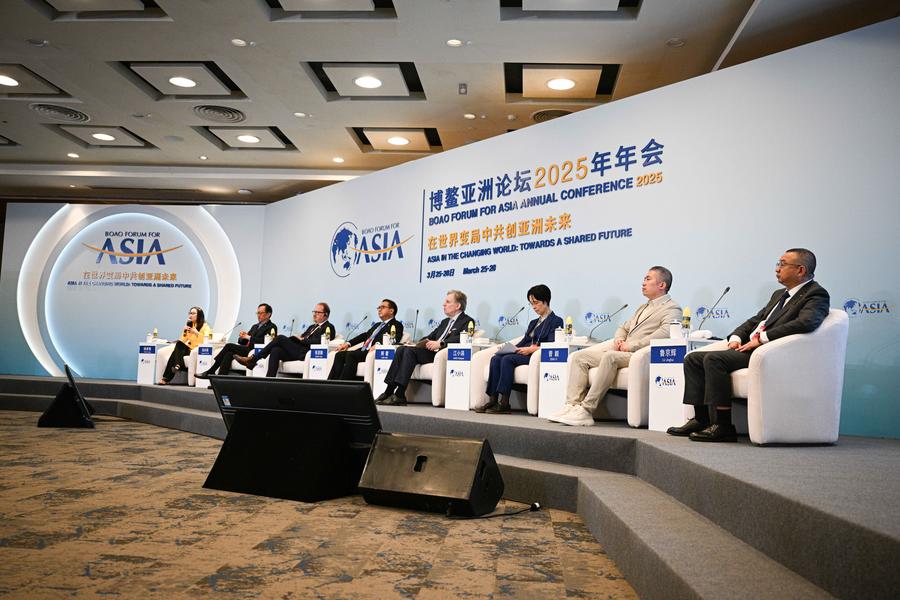
Far from helping the United States achieve its goal of greater prosperity, unilateralism and trade protectionism pursued by the US government have done harm to both the country itself and the rest of the world, said experts participating in the 2025 Boao Forum for Asia.
Kishore Mahbubani, former permanent representative of Singapore to the United Nations, started his speech with the word "multicivilizational", explaining that this should be a world where there can be many beautiful civilizations, not only one great power. However, US President Donald Trump is walking away from multilateralism, he said.
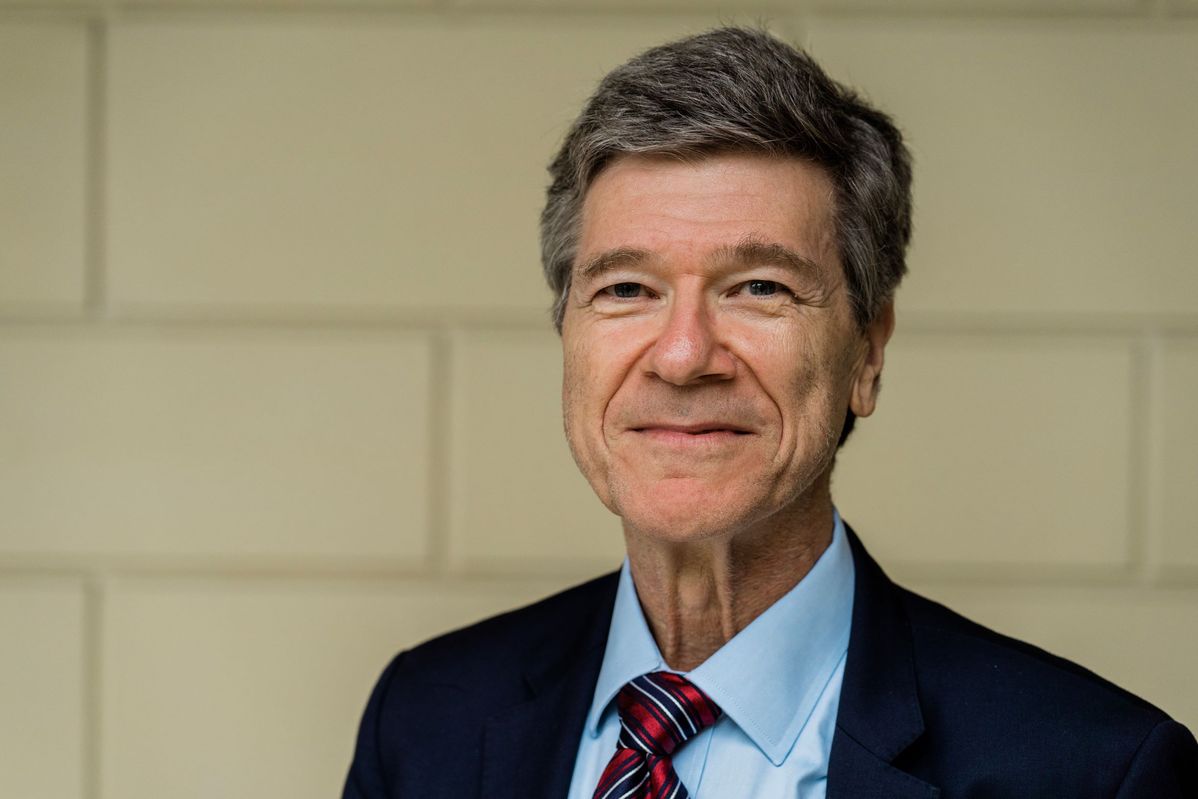
The prevailing view in Washington that China poses a threat to the United States is a mistake with dangerous consequences, a senior US economist warned.
This flawed approach, if left unchecked, risks becoming "a self-fulfilling prophecy of conflict" between the world's two largest economies.
This year's two sessions is a reconfirmation of the confidence that Merck has in China because the Chinese government has set the economic growth target at 5 percent, focusing more on innovation, especially on new quality productive forces, Marc Horn, EVP of Merck Group, and president of Merck China, told China Daily Website during an exclusive interview at the Boao Forum for Asia in South China's Hainan province, on March 26.
"These are all areas where we are feeling very confident to contribute to because they match very well with our healthcare, life science and electronics businesses," he added. Click the video to find more.
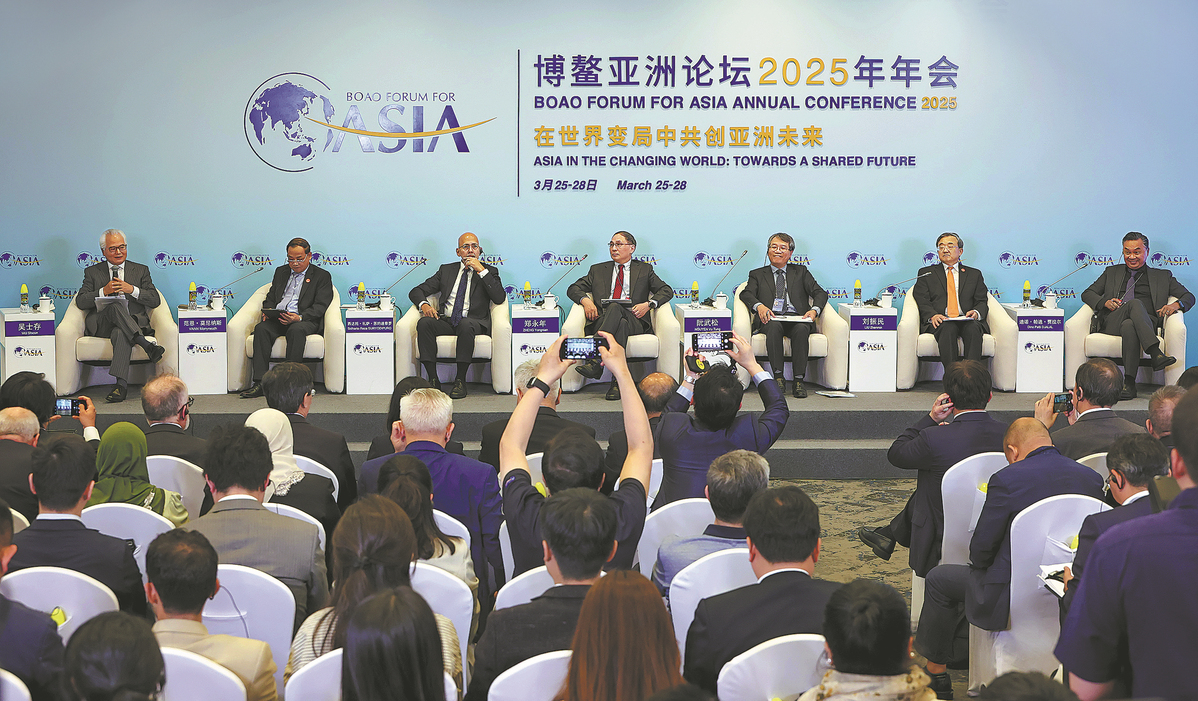
Officials and experts attending the Boao Forum for Asia Annual Conference have underlined the need for the countries involved in the South China Sea issue to resolve their disputes through dialogue to promote peace, friendship and cooperation in the South China Sea.
They made the remarks on Thursday at a subforum, themed "Illuminating the Blue: Building the South China Sea into a Sea of Peace, Friendship and Cooperation", held on the sidelines of the annual conference.
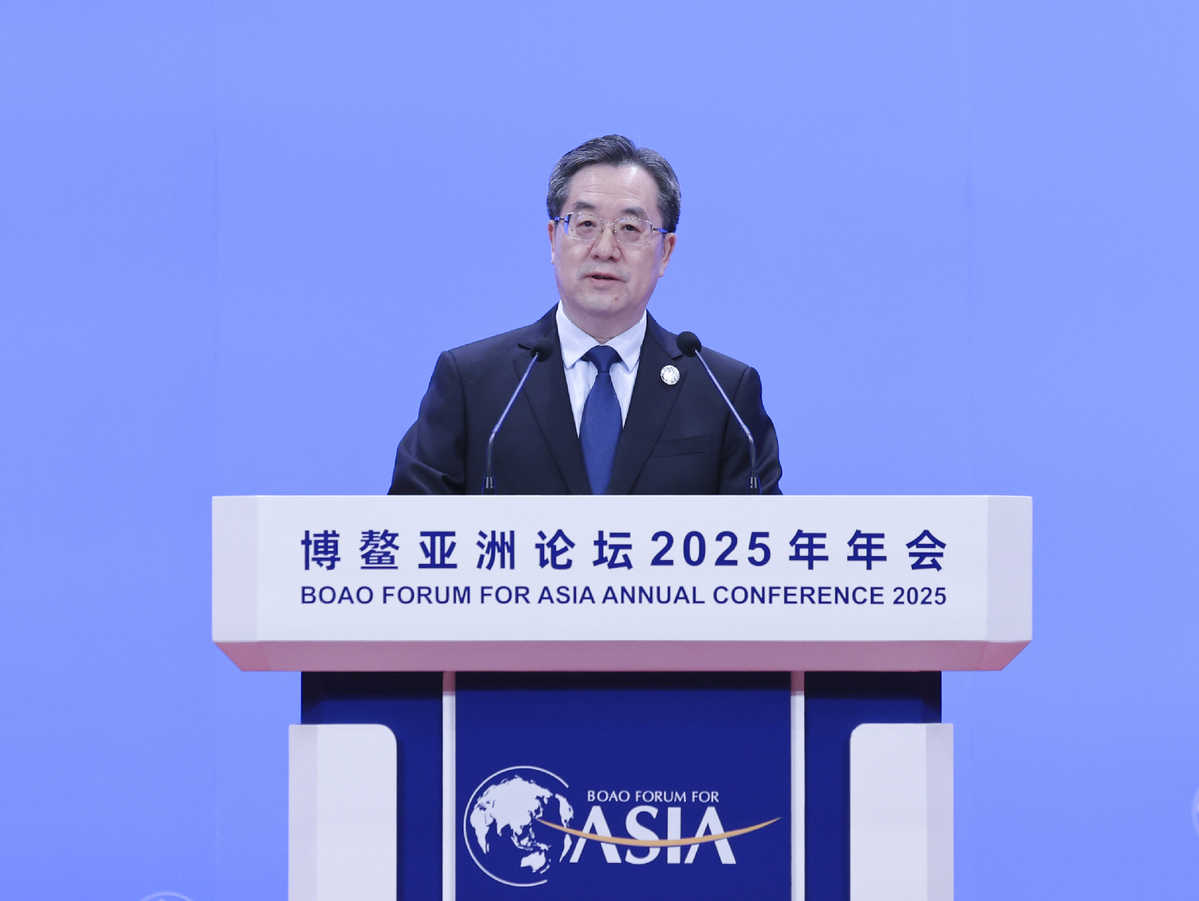
Vice-Premier Ding Xuexiang said on Thursday that the Chinese economy is growing steadily with a stronger outlook despite many difficulties and multiple challenges, thanks to its increasing capacity to drive growth through innovation.
He made the remarks in a keynote speech delivered at the opening of the Boao Forum for Asia Annual Conference 2025, which was held in Boao, Hainan province, with the theme "Asia in the Changing World: Towards a Shared Future".
A green transformation is unfolding on Dongyu Island in Qionghai city, Hainan province, setting a new benchmark for global low-carbon development. In March 2024, the island launched a near-zero carbon demonstration project and now, it has achieved a complete transition to zero-carbon status, emerging as a model for sustainable development.
The term "zero-carbon" does not mean zero emissions in absolute terms. Instead, it involves precisely measuring greenhouse gas output, implementing targeted reduction strategies and offsetting remaining carbon footprints to achieve net-zero emissions. This concept has been put into practice on Dongyu Island, home to the Boao Forum for Asia (BFA).
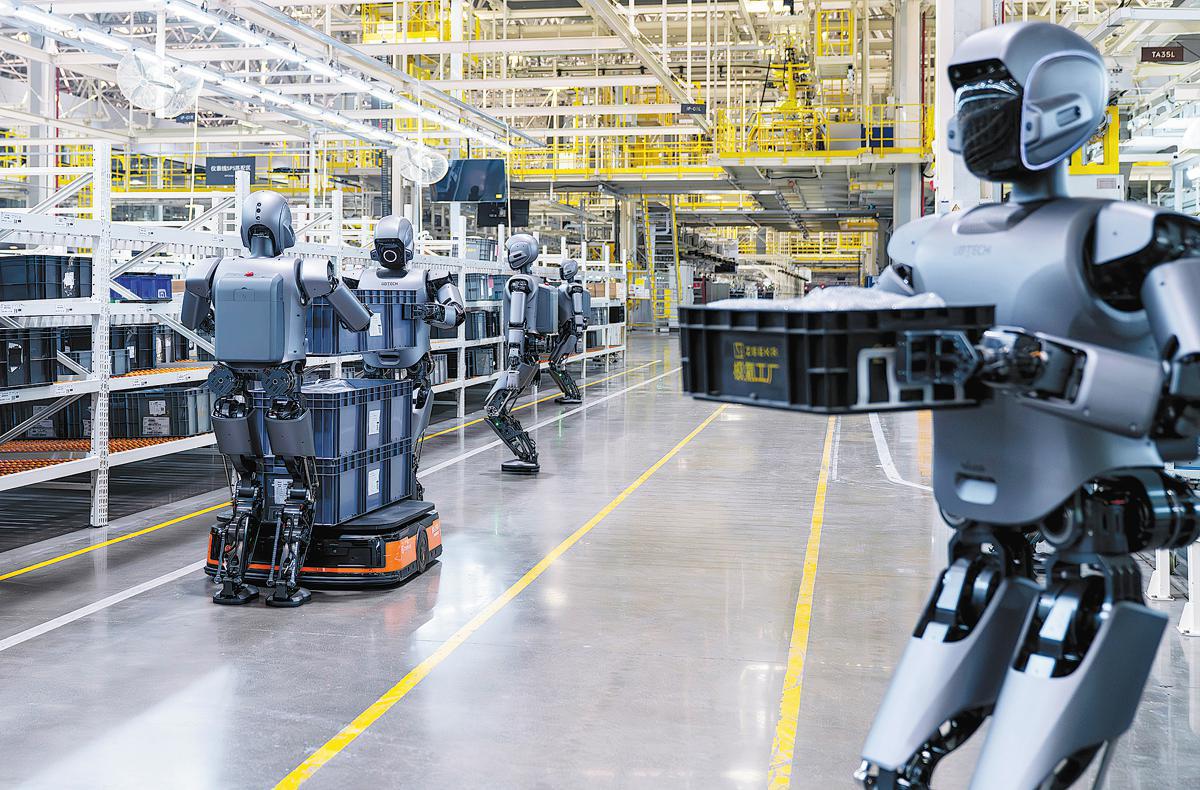
BOAO, China - Propelled by domestic innovation, China is assuming technological leadership globally, transitioning beyond its role as the world's factory, Denis Depoux, global managing director at Roland Berger, a Munich-based consultancy, said on Wednesday.
The vast scale of China's market has played a pivotal role in this shift, allowing companies to test and upgrade products rapidly, said Depoux, who is attending the Boao Forum for Asia annual conference in south China's Hainan province.
China's economic prospect is quite bright, said Carl F. Fey, a professor of strategy at BI Norwegian Business School, to China Daily Website during an interview at the Boao Forum for Asia 2025. He emphasized that China's economy isn't going to stop growing, as the Chinese government has done a lot of things to ensure a stable economic growth in the future, including improving the intellectual property protection.
Fey also noted that China is evolving from the "world's factory" to a global innovation powerhouse, with initiatives such as the China International Import Expo facilitating foreign companies' market entry and increasingly transparent regulations fostering a favorable business environment. Click this video to learn more!
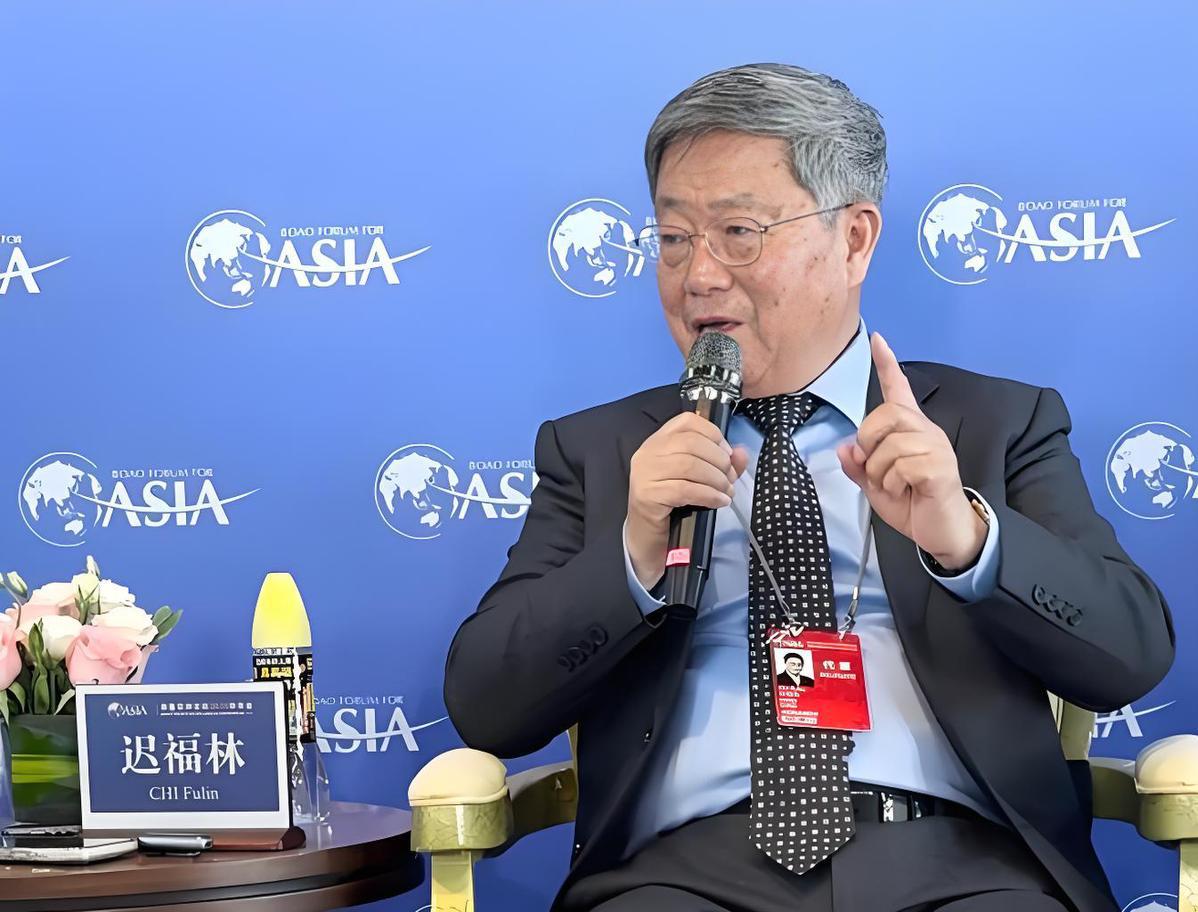
The Regional Comprehensive Economic Partnership plays a key role in advancing regional economic integration, said Chi Fulin, president of the China Institute for Reform and Development, on Tuesday during the ongoing Boao Forum for Asia Annual Conference 2025.
Chi highlighted RCEP's role against the backdrop of shifting global geopolitics, noting that it has become the world's largest, most equitable and promising free trade zone amid global uncertainties.
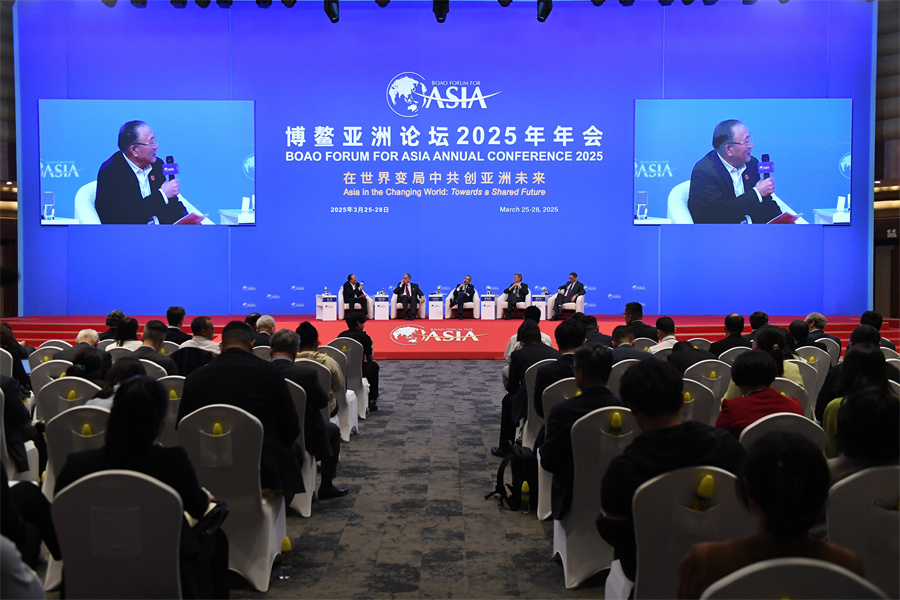
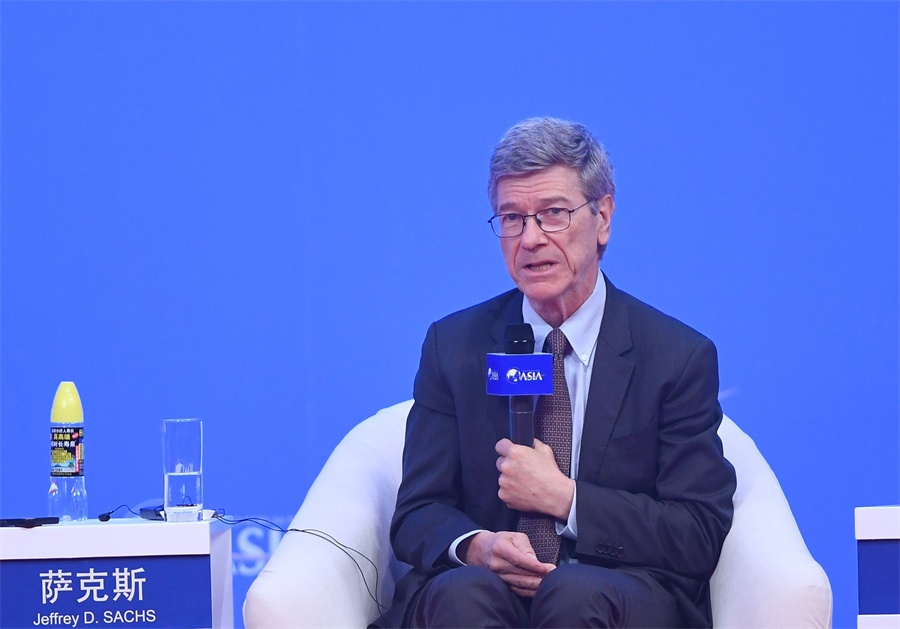
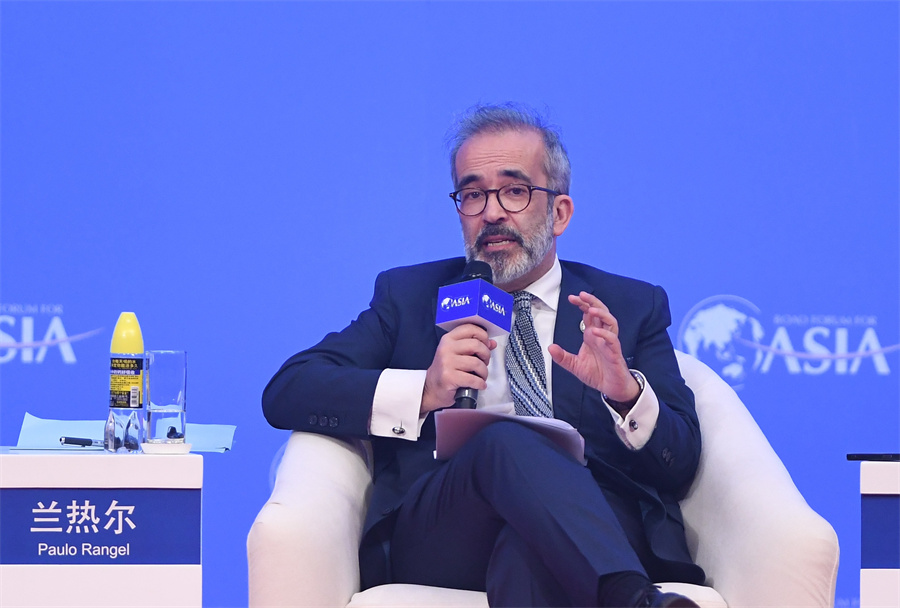
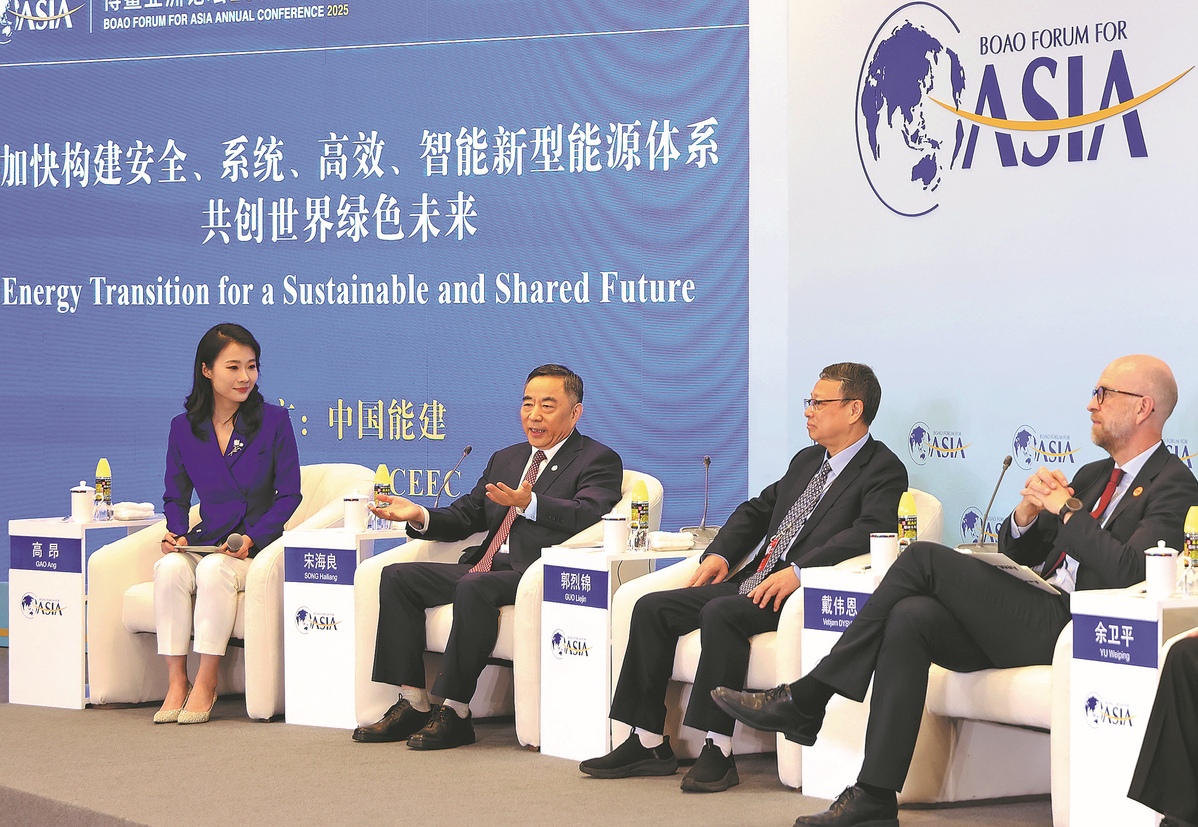
China Energy Engineering Corp Ltd is planning for a bigger role in global energy transition and infrastructure development through its latest efforts to expand green hydrogen and artificial intelligence, its chairman said.
CEEC is advancing integrated renewable energy, hydrogen, and storage solutions, and its latest green hydrogen projects are expected to play a key role in decarbonizing industrial sectors, Song Hailiang, Party secretary and chairman of CEEC, said at the ongoing Boao Forum for Asia Annual Conference on Tuesday.
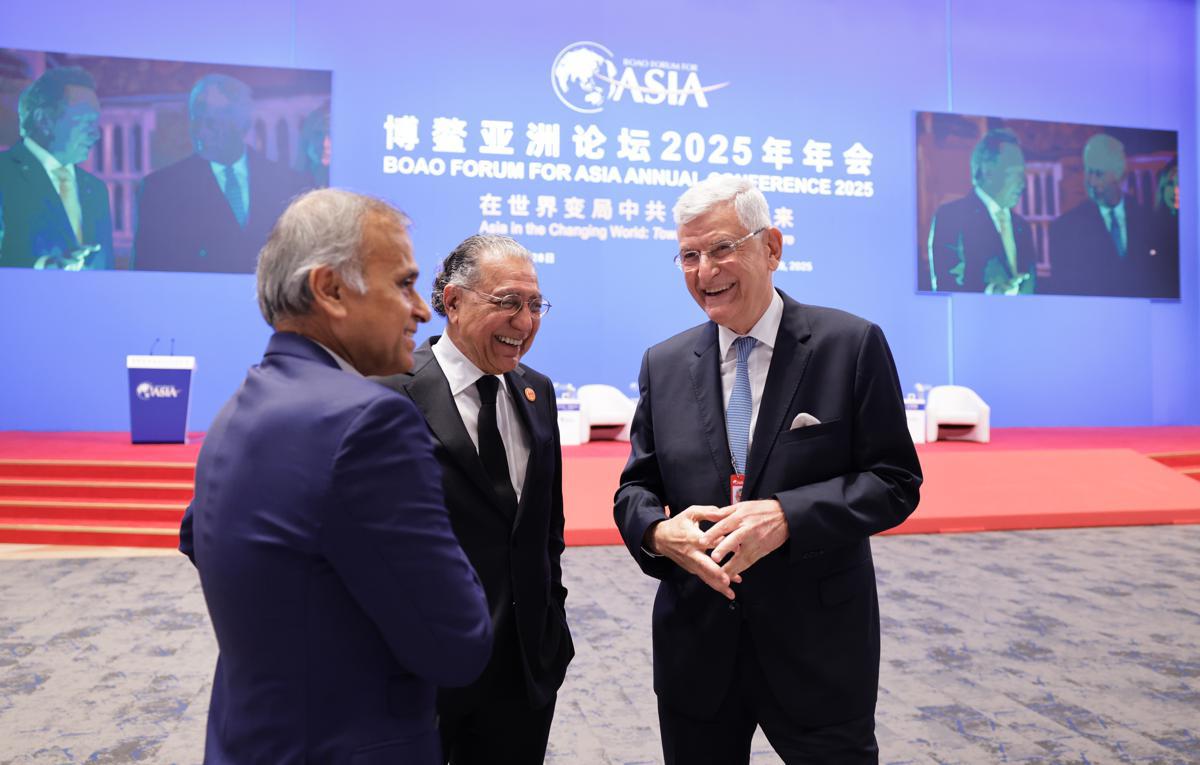
Multilateralism should be reinvigorated in promoting the building of a just and rational global governance system to cope with pressing global challenges, according to officials and experts attending the Boao Forum for Asia Annual Conference.
Themed "Asia in the Changing World: Towards a Shared Future", this year's conference, running from Tuesday to Friday, is designed to promote openness and development and carry out the commitments of the United Nations Summit of the Future while focusing on the development of Asia.
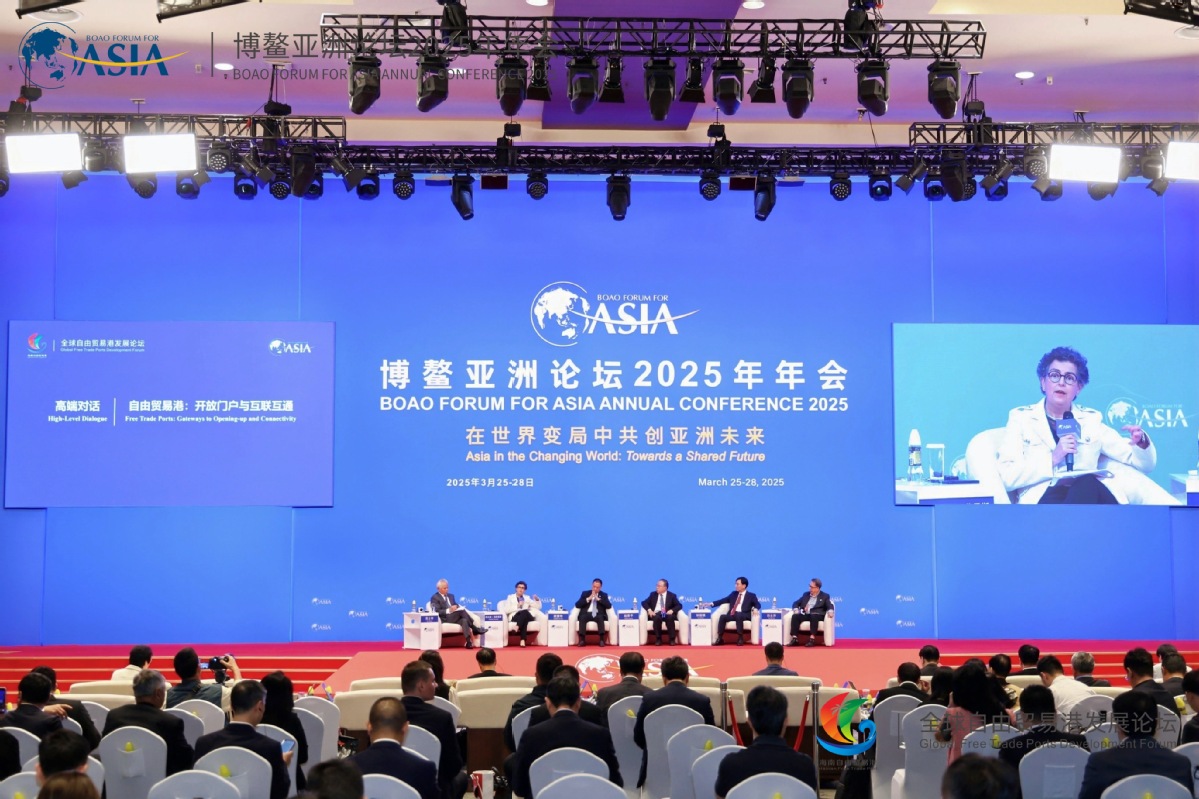
China's Hainan province emerged as the newest high-level player in the free trade port arena during the fourth Global Free Trade Port Development Forum, where global leaders and policymakers championed free trade ports as vital engines for economic growth amid rising protectionism.
Xie Jing, vice-governor of Hainan, acknowledged the global trade challenges posed by rising protectionism but emphasized the role of free trade ports as hubs for innovation and cooperation. "How FTPs can advance global free trade, foster connectivity and enhance competitiveness through policy exchange is a critical issue," she said.
Free trade ports can drive connectivity and opening-up forward especially in a changing world where geopolitical shifts, poverty and even supply chain disruptions prevail, as emphasized by guests and experts participating in the Free Trade Port Development session on Tuesday under the 2025 Boao Forum for Asia.
Ban Ki-moon, chairman of Boao Forum for Asia, said the impressive participation at the 2025 forum shows how important promoting free trade is, especially in a turbulent world where unfair trade caused by protectionism is rising. This is why it is essential to develop free trade ports to deepen global connectivity and cooperation, he added.
Promoting the growth of free trade ports can help Asia, now an engine of global growth, to promote multilateralism and reject protectionism, stressed John Lee Ka-chiu, chief executive of the Hong Kong Special Administrative Region, at the conference.
